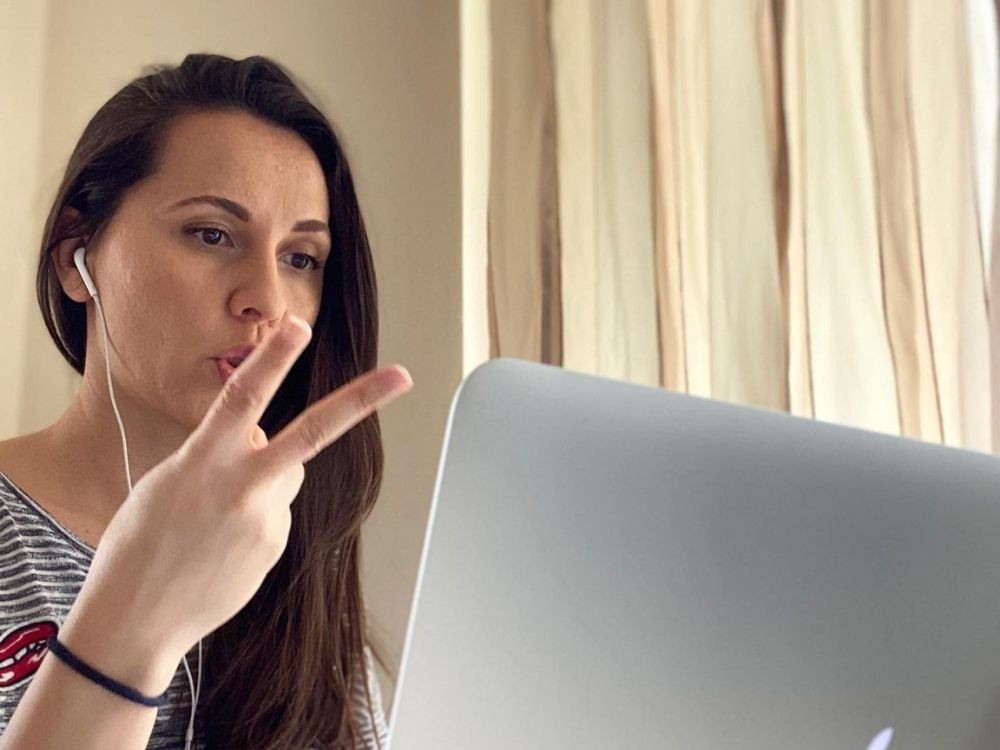Today's world is inextricably linked to technology and more and more children are spending time in front of electronic devices, whether they use them for learning or entertainment. This is also shown by statistics in Bulgaria, as data for the past two years are alarming.
"According to the latest data, 83% of Bulgarian children spend their time watching a display device actively or passively for at least 2 hours a day during weekends, as during the week they spend 48% of their time in front of the screen, which exceeds the recommended pediatric dose," says Yana Ilcheva. speech therapist, consultant and therapist who works with children with developmental problems.
Delayed speech, emotional disorders, impaired concentration, frequent cases of violence - these are just some of the problems that arise as a result of the use of electronic devices by children. Is the situation really that serious?

"Yes, all this is an interconnected complex, the foundations of which are laid at an early age. The display slows down the development of meaningful speech, communicative behavior cannot be developed. For children, real playing is extremely important as it gives life experience, develops imagination, emotional maturity and awareness," Yana Ilcheva says and gives examples from her practice of the opposite: a child who can not turn the pages of a book, but slides fingers on the page, or a child who has not built their identity and likens themselves to a cartoon character. It is no coincidence that in recent years such terms as Electronic Screen Syndrome and ‘generation of alienation’ have emerged.”
"Excessive use of electronic screens results in over-stimulation of the nervous system, changes in the biochemical processes in the brain and stops building of the right neurological connections. Working memory as well as creative thinking do not develop well. Unfortunately, more and more children have cognitive and learning difficulties," Yana Ilcheva says.

Last year, children in Bulgaria finished school remotely and at the moment upper-grade students still study online. How will distance learning affect Bulgarian children?
"The consequences are yet to be explored. Isolation and screen time are most detrimental to first graders and children with developmental problems. Learning difficulties are also increasing because students are lagging behind. In terms of social skills, I think they will catch up by going back to class. In the future, difficulties in concentration, behavior, auditory attention, fine motor skills will be more common. In my opinion, the consequences will be mostly psychological and educational," Yana Ilcheva says.
Technologies limit sensory integration, live connection, the sensation of real communication, movement. But they can also be an additional support when they are purposefully used and dosed:
"There are many educational channels and applications that facilitate the learning process. They can also be used for alternative communication. We cannot isolate children completely, we are all dependent on technology in some form. However, technology should not and cannot replace real life events, communication, practical skills and needs," Yana Ilcheva says in conclusion.

English: Alexander Markov
Photos: archive
A case of a dog run over by a doctor in a district of Sofia has caused a wave of public indignation and a protest in Sofia, which will take place today in front of the Military Medical Academy - the medical institution where the medic..
Forty Bulgarian schools in 22 US states have become a second home for the children of Bulgarian emigrants. They create continuity between generations and teach about Bulgarian history, traditions, and culture. They also create..
“The end is near – let’s go out with style!” This is the motto of the 2026 Gabrovo Carnival, marking the start of the so-called fifth season of the year – the carnival season. The 11th day of the 11th month ushers in the carnival season..
The diplomas from the 11th master class in radio journalism of the Bulgarian National Radio – BNR Academy were awarded at a solemn ceremony on November..
The first museum of investment gold is welcoming visitors in Plovdiv who want to learn more about the history of money and its connection to gold – from..
On 16 November, we celebrate Caritas Day, when we honour the Catholic Church’s charity organisation that brings hope to those in need through care and..

+359 2 9336 661
